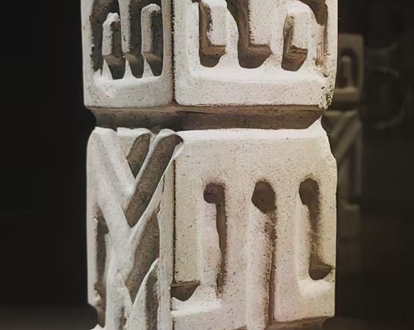Relational and Social Constructionist Consortium of Ecuador (IRYSE)
Diego Tapia Figueroa, Ph.D. and Maritza Crespo Balderrama, M.A.
Being with, to navigate uncertainty, accepting complexity
By opening dialogue, a process of unprecedented relational transformation begins. The fundamental aspect of every encounter is the awareness of one’s responsibility to contribute to building connections and bonds, being with others, navigating uncertainty, and accepting complexity.
In fact, people’s suffering and pain often stem from the absence of significant connections, the feeling of whether they matter to others, whether they hold human value worthy of respect, and whether their needs and rights are acknowledged and respected. It is about whether they are loved, respected, accepted, and recognized.
If there is anything that protects people and gives them hope, it is the relational experience of being valued, recognized, respected, and loved—of mattering to someone, being important to someone, and feeling welcomed in the lives of those who share their moments and life cycles.
For this reason, the professional work we do, grounded in relational ethics and radical presence, is to contribute with intelligence to creating possibilities for authentic connection in the diverse relational contexts of those we interact with.
It is a dialogical process in which we commit to honestly questioning all practices that render invisible, silence, normalize, or perpetuate relational abuse, as well as all the cruel, unjust, abusive, and violent ways of relating, especially toward children, adolescents, and women.
It involves challenging, with consistent arguments, all forms of power abuse and questioning how this abuse is legitimized by convenient ideological excuses that maintain the power and privileges of those who, from their hierarchical positions, guarantee exclusion, oppression, exploitation, and relational and social misery.
It means, among other things, taking responsibility for making one’s voice heard, for saying and expressing freely and openly what one thinks, feels, desires, and needs to become something different, to transform. It also means calmly asking oneself:
What can I contribute differently to build the kind of meaningful, assertive relationships I would like to have?
What can I imagine doing and saying differently to generate the relational transformations I wish to experience to find purpose in my life with others?
Others [what for] political, poetic senses, trusting in the process of dialogue, in relationships
Engaging in conversations is fundamental to committing to relationships that create new connections, generating a sense of participation and belonging. In creative dialogues capable of questioning the commonplace, the social and cultural stereotypes, and the prejudices that tyrannize people’s lives, we challenge all cruel and unjust status quo. We refuse to cover up or legitimize abuse and violence, choosing instead to leave behind blindness, comfort, standardized nonsense, and indifference.
These are open dialogues that confront anguish and emptiness. Tentatively -with curiosity and respect, following deep listening (without interrupting those who speak or choose silence until they are ready to share)- we invite words with meaning to address that anguish and emptiness, allowing a personal subjectivity to emerge. Together, we participate in the co-construction of new meanings.
In our work as therapists and clinical supervisors, we engage through questions, and the best question is the one that connects with what the client has just expressed. We are not here to give advice or sermons, nor to colonize the subjectivity of our clients. Instead, we co-create a space of trust and security to be inhabited by the client’s voice.
This is a process of mobilizing resources and strengths, shifting the focus away from deficits, from what is not working, and instead focusing -with consistency and discernment- on the positive, on exceptions, on what does work. We emphasize contributions, reflective pragmatics, genuine tenderness, and being a supportive witness for those in need. Each time, we generate innovative learning as if it were the first time, building towards a shared well-being.
How do we accompany each other in our mutual vulnerabilities, with the curiosity and respect we deserve, through deep listening and understanding? This means truly being able to comprehend, jointly constructing new meanings, with new words that, from a place of complexity, embrace our vulnerabilities.
The dialogic process seeks to build connections of intimacy and acceptance of our vulnerability, grounded in trust, respect, joy, responsibility, freedom, creativity, and dignity. We invite others into sincere dialogues, with relational sensitivity, from a place of wonder and curiosity. Together, we marvel at the questions that transform us and the singularities that enrich us.
We invite [in that transformative dialogue called therapy] with enthusiasm and passion, to resist and rebel, to reflect critically, and to open generative and collaborative spaces. This embodies relational responsibility, being accountable for responding, caring for ourselves and others, and nurturing the relationship. We articulate other [why] political and poetic meanings, trusting in the process of dialogue, in relationships, and the recursive capacities of people. Each person can confidently and gratefully be where they wish, exercising their right to imagine new possible futures.
The Garden of Earthly Delights – detail -, c. 1500-1505, by Hieronymus Bosch.
English translation by Bruno Tapia Naranjo.



